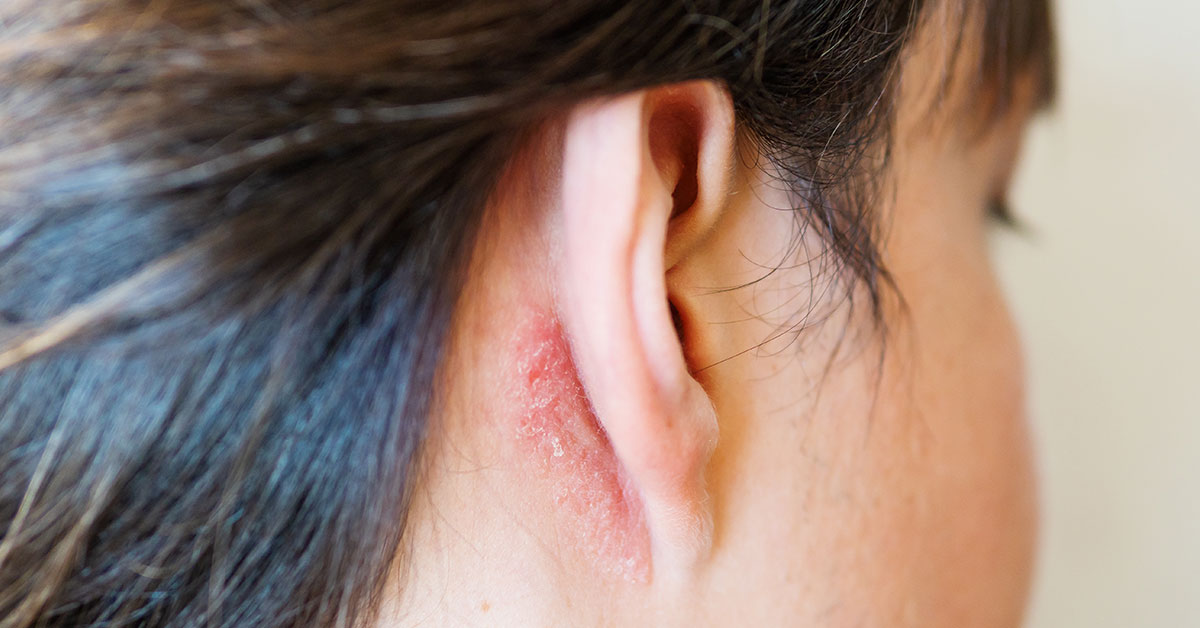
One out of every five persons in the United States suffers from allergies. These allergies can manifest in a variety of ways and affect numerous areas of the body, including the ears. Allergies might be the cause of your ear pain or poor hearing if you catch them on a frequent basis.
You can, fortunately, do much good about your ear allergies and reactions after you understand the reasons and how to receive an accurate diagnosis and treatment. Get started by reviewing the guide for ear allergies and their management.
Allergies develop whenever your immune system reacts to a typically nontoxic object as though it were a genuine threat to your health. It responds by releasing antibodies that fight the allergen and releasing a chemical known as histamine.
Histamine causes the sinuses to generate excessive mucus, which can subsequently stream down the cavity of the middle ear, causing ear pain as well as throat irritation. Simultaneously, tissue swelling may hinder fluid outflow, resulting in congestion. Because the ear canals link to the Eustachian tubes, you may develop ear pain allergies and other symptoms.
Fluid can build up in your ear canals and also at the back of your eardrums as a result of sinus pressure and congestion caused by an allergic reaction. These unusual pressures can cause severe ear pain allergies and an uncomfortable sensation of fullness. Itching may also occur in the outer regions of your ears causing red hot ears allergic reaction.
Hearing loss could be a potential one of the outcomes due to ear allergies. Hearing loss occurs when your ears and sinus passages carrying the fluid pressure interferes with the natural travel of sound waves. Tinnitus, or ringing in the ears can be caused by the same factors.
If you are having a seasonal allergy, you may become more prone to ear infections. When pollen levels are high, allergic responses are likely to produce inflammation and congestion. This can develop a variety of complications, including:
Ringing in the ears and dizziness are two other symptoms of ear allergy infection. It may also result in loss of equilibrium. In extreme situations, the eardrum may rupture, allowing the pus to drain from the ear.
Histamine release can induce irritation of the mucous membranes lining the nasal canals and ears. This inflammation can cause an obstruction in the ears, restricting fluid or mucus from drainage and causing ear pain due to pressure accumulated inside the ears.
An allergic response that causes inflammation of your Eustachian tubes can also cause short-term hearing problems. When the allergies subside, the conductive hearing loss usually resolves on its own.
Before you receive the adequate and timely therapy for your ear and hearing difficulties, you must first determine whether the problems are related to an allergy or any other disease. If your family physician has previously ruled out an acute illness or injury, then you must consult an allergy expert to determine any allergens that may be affecting your ears.
Skin testing will most likely be carried out by your allergy doctor. This type of test will involve an incision, injection, or patch that delivers a minimal quantity of various suspected allergens to your skin. If your skin responds to a particular allergen, you’ve identified the source of the problem. Blood testing can also detect allergies based on the antibodies they elicit.
You could find that your ear allergy symptoms are caused only by seasonal or environmental allergens. If this is the case, you can reduce the seriousness of the issue by cleaning your household more often, wearing a mask outside, or just avoiding allergen-rich surroundings.
Antihistamines or steroid medications may be prescribed by your allergist to provide short term relief from ear allergies symptoms. If you prefer a more long-term approach, ask your allergy specialist if injectable medications or antibiotics for ear infections will help control your issue.
When treating ear infections in children due to ear allergies, doctors frequently adapt a wait-and-see strategy to prevent overdose of antibiotics, which can develop antibiotic resistance. If your symptoms are severe or do not resolve within 2 to 3 days, your doctor may prescribe you an antibiotic prescription. Alternatively, they may issue you a prescription but advise you to wait 2 to 3 days to see whether your child’s symptoms improve. You should not administer aspirin to children unless directed to do so by their doctor. Aspirin is an avoidable potential risk for developing Reyes’ syndrome, a rare illness that damages the brain and liver.
See Also: Will Allergy Season Be Longer In 2022?
Family Medicine Austin will help you figure out what is causing your allergies. Contact our clinic right away to set up an appointment, receive a definitive diagnosis, and discuss your tailored treatment options.